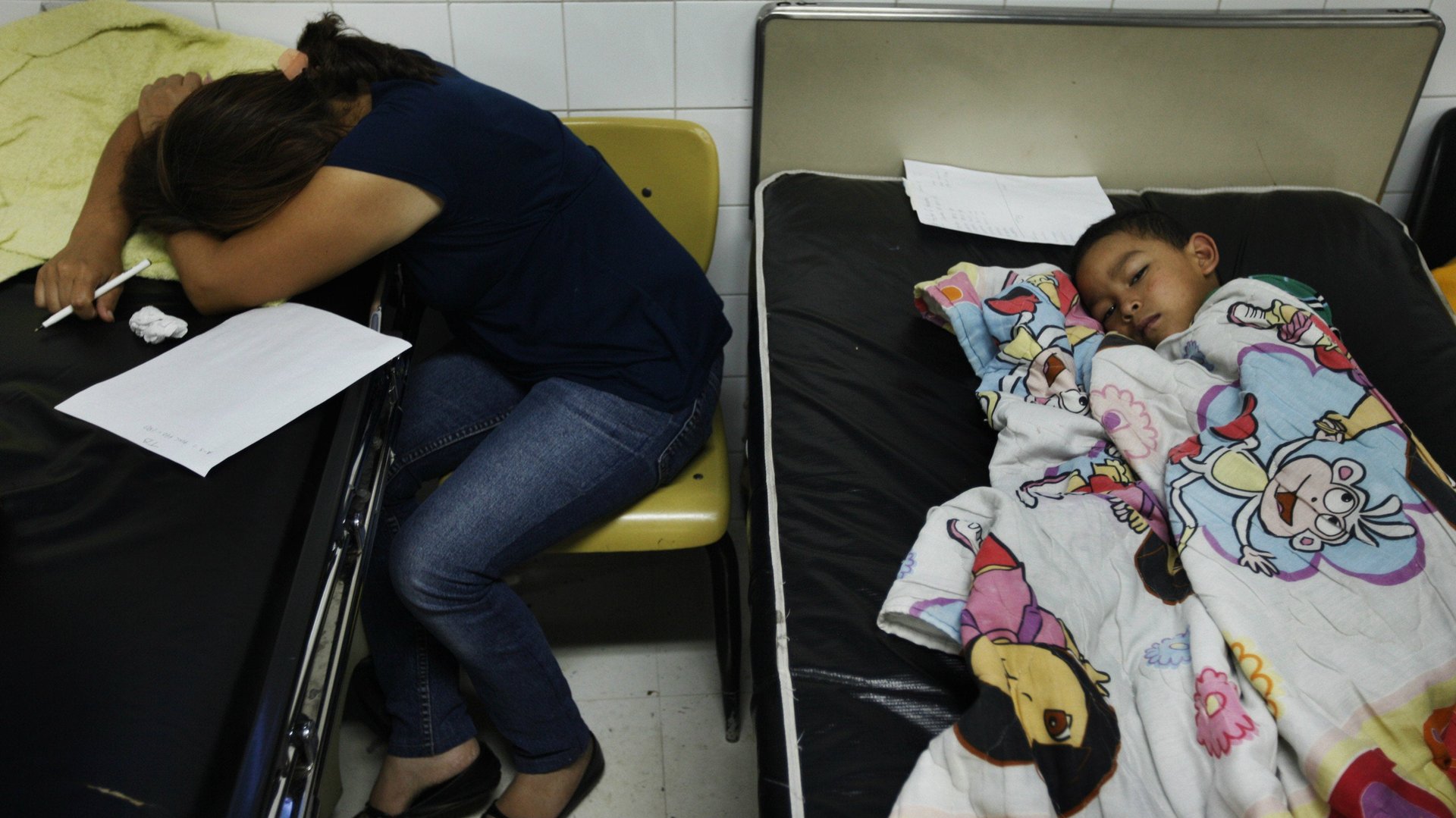Economists quantified what sleep deprivation does to mothers’ pay and productivity
When Joan Costa-Font became a father, the health economist noticed a dramatic drop in his productivity. “And I am the man,” he said, acknowledging that the effect was clearly worse on his wife.


When Joan Costa-Font became a father, the health economist noticed a dramatic drop in his productivity. “And I am the man,” he said, acknowledging that the effect was clearly worse on his wife.
He and Sarah Flèche, a labor economist, decided to quantify the productivity drop. The novel way they chose to do it was to look at how children disrupt mothers’ sleep, and how that disruption in turn affects mothers’ labor force productivity, including hours worked and income earned.
As any parent who has experienced the debilitating effects of sleep frequently interrupted by children knows, the effect was huge.
“We find that improving the mother’s average nightly sleep duration by one hour increases employment by 4 percentage points, the number of hours worked by 7 percent, household income by 10-11 percent and job satisfaction by 0.01 points,” the two wrote in a working paper published by the London School of Economics Centre for Economic Performance. (A working paper is study that has not been checked by other experts in the field, which is required before it can be published in a reputable journal.)
Sleep is a big deal, but labor economists have been slow to recognize its importance. The main components to a model of labor productivity are labor and leisure. Sleep, which accounts for about a third of our lives, does not always factor as importantly, Costa-Font said.
“The number of hours the average person sleeps has declined over the past century, and we still ignore its effects on economic activity and economic performance,” the two wrote in their paper.
Sleep loss has been associated with hypertension, diabetes, depression, and obesity, not to mention cancer mortality and a drop in general well-being. Sleep-deprived people have been shown to have impaired cognitive and motor functions, and to make rash decisions.
Logically, then, it would seem poor sleep quality would result in less economic productivity.
But the challenge is in how to analyze this, due to the problem of reverse causality: Do productive people sleep more because they are productive, or do people who sleep better become more productive? It’s tricky.
To deal with this, the researchers decided to look at variations in family sleep patterns—which are notoriously variable when a child is born—and how they affect maternal sleep quality and employment outcomes (hours worked, income earned).
They used the Avon Longitudinal Study of Parents and Children (ALSPAC), a study of 14,000 families from a child’s birth to age 25. It is a treasure trove of data, with records of both parental and child sleep, as well as more arcane items such as size of room, type of sleeping arrangement, whether a parent is an extrovert or introvert, and important employment data such as estimates of job satisfaction, income, and duration of employment for both parents.
The working paper has some real gems in it. For example, it finds that “a one-unit increase in the number of times a child wakes up at night leads to a reduction in the mother’s average duration of sleep by 30 minutes per night.” New parents will know this effect: You wake up to the whimper of a child, and then take 30 minutes to fall back asleep. They found that the effect extends to fathers too, but it is twice as bad for mothers.
Of course, women’s labor force participation is affected by many things: whether she enjoyed her job when she became pregnant; the quality and affordability of childcare; the duration of paid or unpaid leave; income; and the relative importance of her income to overall family earnings.
The authors controlled for every effect they could, including parenting style, the presence of a new partner, the presence of a new child, and childcare arrangements. Also, Costa-Font said: “the kind of room the child sleeps in, the income, household composition.”
The association held: child sleep quality affects parental sleep quality, which is strongly correlated with parental employment.
“The implications are huge” said Costa-Font. “You have to recognize the impact on parents—not only are they going through hardship of having kids, but when they work they are less productive.”
If policymakers want to encourage baby-making and fertility, they should consider subsidizing these productivity losses, he suggested. “If we think of policies to incentivize fertility and children, we need to think beyond just childcare and about how to compensate parents for their productivity loss.”
The paper also seems to indirectly make a strong case for sleep-training, a highly contentious subject.
One weakness of the paper is that the data set only looks at parents from Bristol, a middle-class English city. It is not clear whether the effects are universal (though most parents will tell you unequivocally that they are). Also, it starts to measure productivity after the birth of the child: a better study would consider the effects before as well.
Costa-Font and Flèche are involved in studying a much larger data set in Germany, which is turning up its own trove of insights, including the fact that the effects of children’s sleep on maternal sleep quality—and thus productivity—last for four years for women, while for men the effect is shorter-term.
As for Costa-Font’s wife, she was neither surprised nor moved by the conclusions, he said. “She thinks I am obsessed with sleep,” he said, noting she is an early riser and he, a night owl. “For me, sleep deprivation has huge draining effects,” he said.